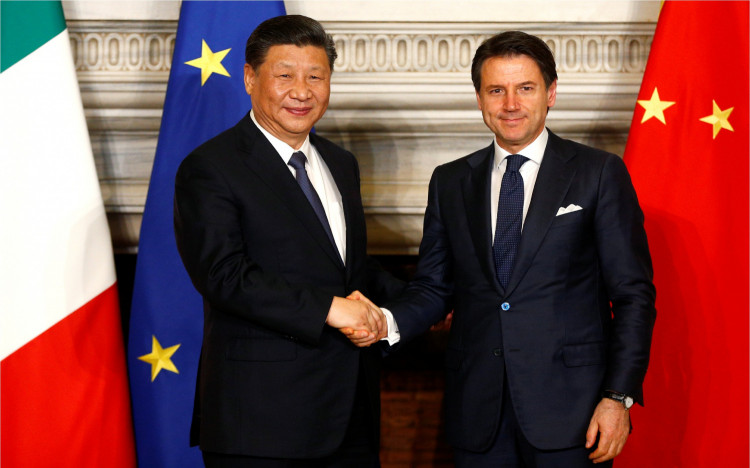Italy is the first European Union to welcome the Belt and Road Initiative of China. It is the first G7 member to sign the memorandum of understanding with China.
China's campaign for a new "Silk Road", the Belt and Road Initiative, is aimed to revive and strengthen the trade ties of the European, Asian and African continent trough interconnected infrastructure projects.
China aids other nations in the construction of ports, airports, railways and other projects by funding the projects. The Asian nation also provides an extended market for the products of the members of the Belt and Road initiative. It attracts more investors and technology that provides revenue which is useful to fund their programs.
The increasing economic and political influence of China in the European continent caught the attention of policymakers on the continent. Recently, the European Union labeled China as a "systemic rival" of Europe.
The European Union Commission's recent document entitled "EU-China: A strategic outlook" said that China is moving from a strategic partner to a negotiating partner. They also labeled China as an "Economic Competitor" in its pursuit of technological leadership.
Rome's decision to join the Belt and Road initiative reflects the importance of leading the European economy to accord to the initiative.
It also shows the ambition of the European nation to obtain a win-win result and their determination to defy the mania brought by the Brussels' neo-cold war.
The Italian Deputy Prime Minister Luigi Di Maio highlighted the concerns by political camps that criticized the participation of Italy in the Belt and Road Initiative.
The minister defended Italy's stand saying that it is in the nation's interest and he argued that it can serve to boost the nation's made-in-Italy agenda.
On March 22, the European Union council met to discuss a common European Union strategy towards China. The result of the meeting serves as their basis for the European Union-China Summit scheduled on April 9.
Italy signed the memorandum of understanding with China after the European Union council's meeting. Europe sees the Belt and Road initiative as a promise for global development as it carries daunting challenges that counter the European agenda on trade liberalization.
In response to China's Belt and Road initiative, the European Commission published the Strategy on Connecting Europe and Euro-Asia which is a document that ignores the Belt and Road Initiative and is based on the economic and institutional norms and practices of the west.





